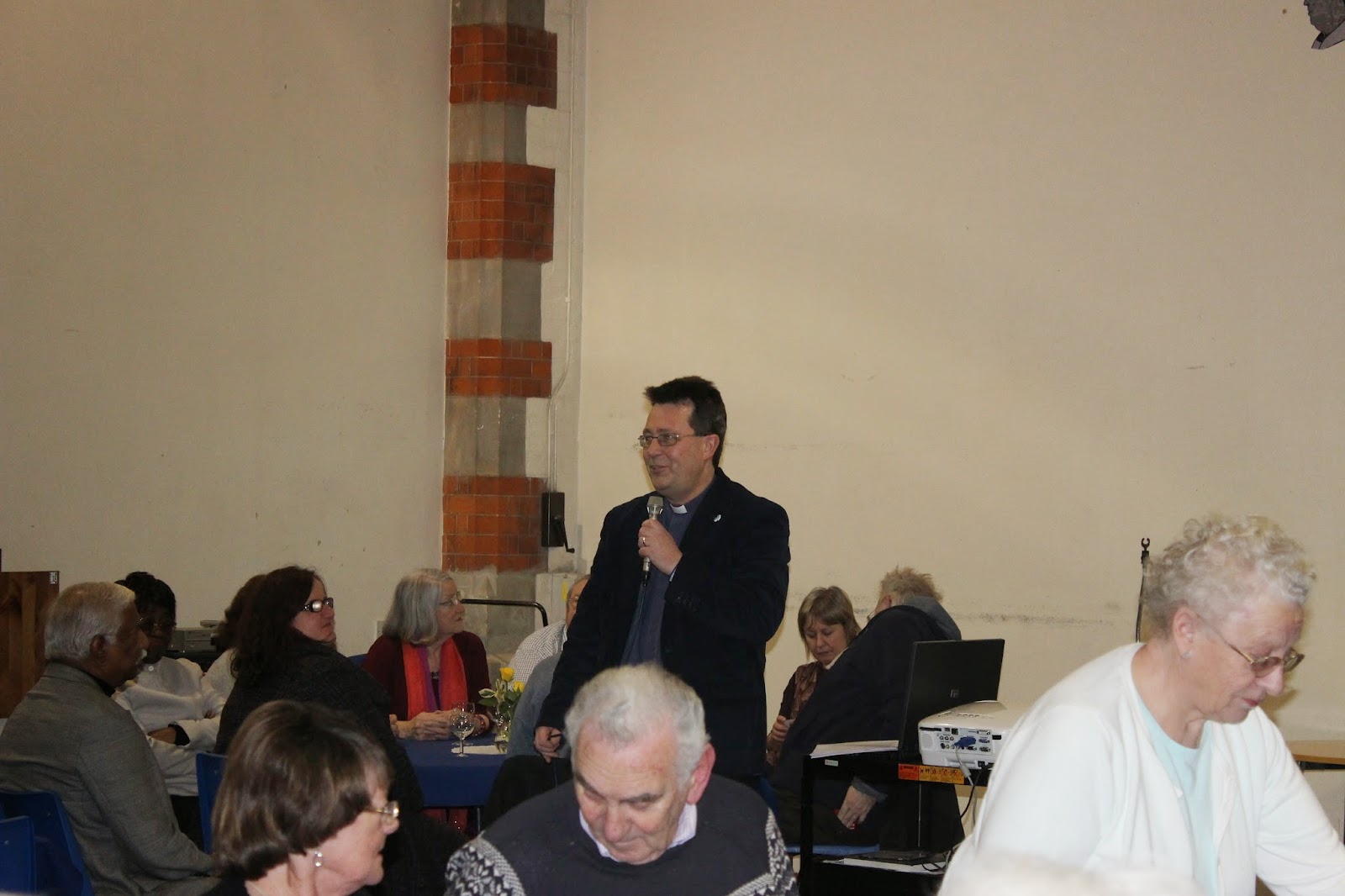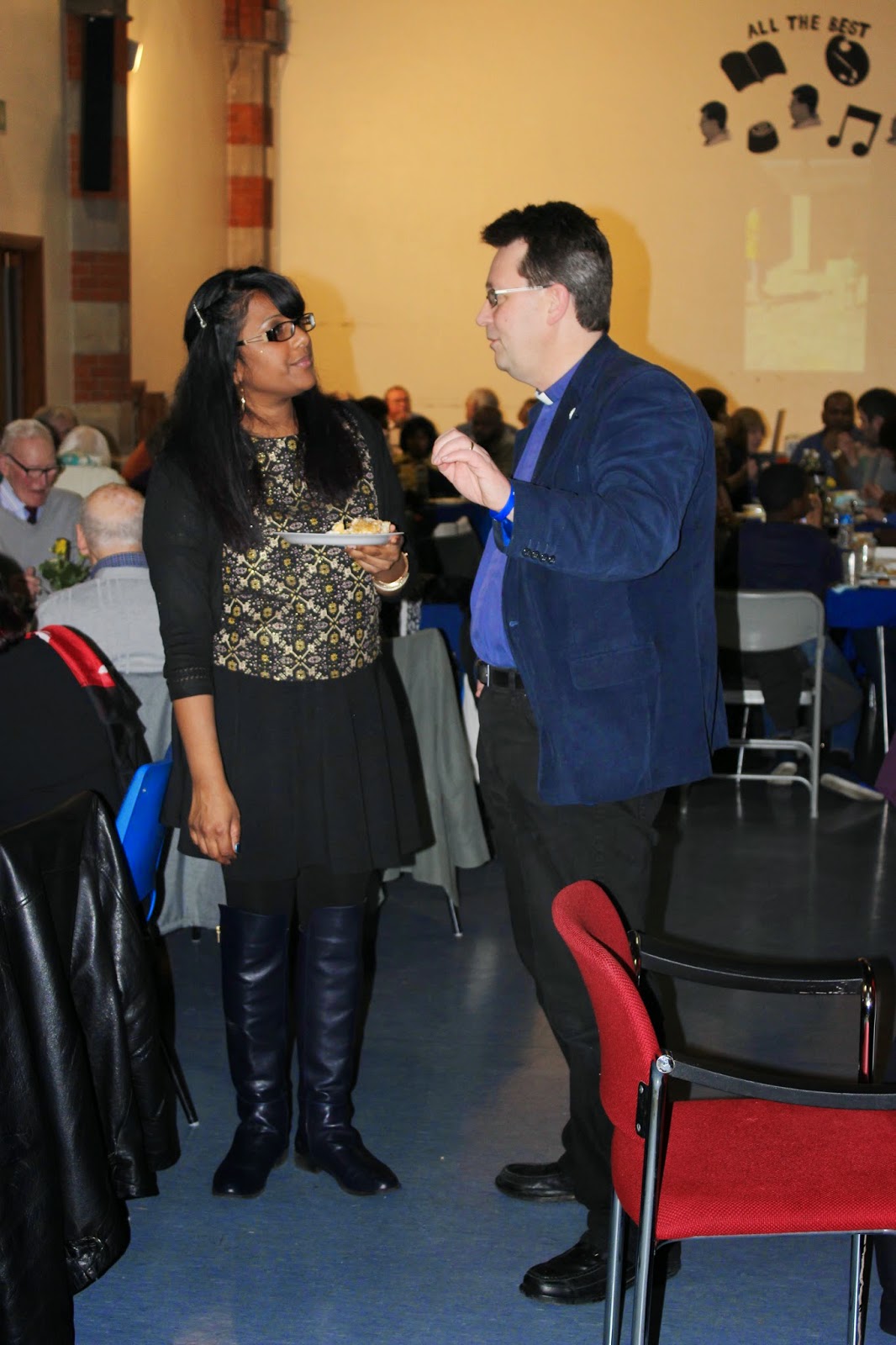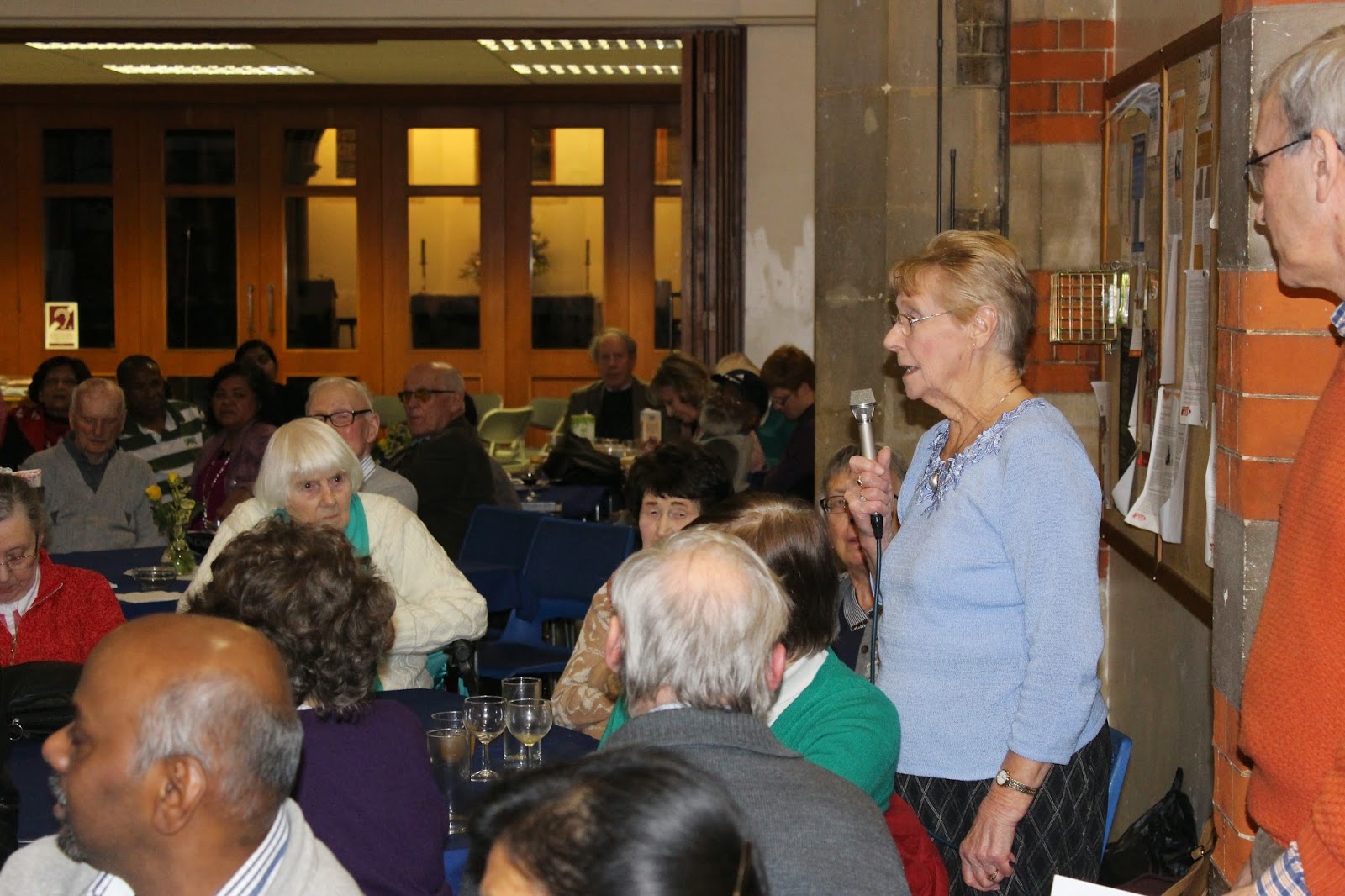My contribution was as the Christian representative to a Scriptural Reasoning style session on the book of Ruth, together with Rabbi David Hulbert. Doing so was a particular pleasure because, while Vicar of St John's Seven Kings, I had got to know David through the East London Three Faiths Forum including travelling to the Holy Land with that group, and had also been involved in setting up and running a Scriptural Reasoning Group which included groups from the local Islamic Study Centre, Oaks Lane Reform Synagogue, and Sr John's Seven Kings.
Here is the introduction to the book of Ruth that I shared in the session this evening:
In the Revised Common Lectionary, which is used by many Church of England parishes for the scripture readings in their services, the book of Ruth is included in Sunday readings once in year A and twice in year B. The Revised Common Lectionary works on a three-year cycle. The daily lectionary also provides 17 additional readings from the book of Ruth.
A principle identified by the compilers of the Revised Common Lectionary was allowing for multiple perspectives on a specific text, depending on where the text is assigned in relation to other scripture texts and in relation to the liturgical year. For example, the fidelity of Ruth to Naomi and the Moabite people and God’s fidelity to Ruth and her posterity are related to God’s fidelity to Israel in the Isaiah reading for Advent 3 of year A. The connection is thematic.
In a similar way, for thematic reasons, Ruth is read again in the season after Pentecost in the complementary series of year A. In this instance, where the first reading for Sunday (I Kings 17:8-16) tells of God feeding Elijah and the widow of Zarephath, Ruth’s story is told on Monday through Wednesday to show the compassion of God and of Naomi’s kin for two widows, both Naomi and Ruth.
The book of Ruth is a story of ordinary people. History is commonly but, perhaps misguidedly, spoken about as being written by the victors; the rulers or monarchs with their armies. There is, of course, much in the Hebrew scriptures that is about those who rule and their actions but there are also writings like the book of Ruth which take a very different focus.
One Biblical scholar in the Christian tradition to have written about these twin strands in scripture is Walter Brueggemann. Brueggemann writes about this in terms of the core testimony and the counter testimony. The core testimony is structure legitimating; that is to say it is about order and control – everything in its rightful place and a rightful place for everything. The counter testimony is pain embracing; that is to say it is about hearing and responding to the pain and suffering which is found in existence. The core testimony is “above the fray” while the counter testimony is “in the fray”. The core testimony is about the victors and the counter testimony about the victims.
When the two are brought together Brueggemann thinks the Bible sees the kind of justice we see being worked out in the book of Ruth as key to any form of public leadership: “The claim made is that power – political, economic, military – cannot survive or give prosperity or security, unless public power is administered according to the requirement of justice, justice being understood as attention to the well-being of all members of the community.”
Brueggemann notes that the kind of kingship that we see David and initially Solomon exercise: “had the establishment and maintenance of justice as its primary obligation to Yahweh and to Israelite society. This justice, moreover, is distributive justice, congruent with Israel’s covenantal vision, intending the sharing of goods, power, and access with every member of the community, including the poor, powerless, and marginated.”
As a result, as Gerd Theissen has written that, in the Hebrew scriptures, when compared with other writings from the same time period: “religion takes an unprecedented turn, and becomes instead an agency of healing for the wounded. In the religion of the prophets … we see the distillation of faith in a God who is on the side of the downtrodden rather than their oppressors, and who seeks to bring a new, supernatural order of justice and peace out of the natural laws of selection and mutation which spell death for the weak and powerless.”
With that thought in mind, I would like to share brief reflections on the book in terms of three current issues: migration, elder care, and patriarchal views.
The book of Ruth is one of those places in the Old Testament where women are central to the story and where the story is told from the perspective of the female characters. The book ends however with a genealogy in which the women's world of the story was completely ignored by the male voices of those who compiled a traditional patrilineal genealogy. So, this is a story of women surviving and thriving in a patriarchal world, a struggle that, as we know, continues to this day.
Ruth and Naomi became refugees driven by economic necessity from Ruth’s mother country in Moab to Naomi’s mother country in the land of Judah. They survive and thrive in these challenging circumstances through their commitment to and support of each other. Ruth could have left Naomi, as Orpah did, but there was a bond of friendship between the two women that held them together, as Ruth said to Naomi, ‘Where you go, I will go; where you lodge, I will lodge; your people shall be my people, and your God my God. Where you die, I will die.’ The world of women and female solidarity are therefore at the centre of this story.
Ruth and Naomi show great courage in leaving one culture to enter another, as do all those who become refugees today. In addition, they are proactive and resourceful in seeking ways forward to find security and a significant place in the history of Naomi’s people.
When Ruth and Naomi return to Israel, they are very poor and a local farmer, Boaz, takes pity on Ruth and allows Ruth to do what is described in Leviticus 23 v 22; Boaz leaves the grain at the edges of the fields so that poor people like Ruth can harvest it and make food to survive. Boaz could harvest the whole of his fields and keep all the grain for himself but doesn’t. Instead, he deliberately reduces what he harvests for himself in order to ensure that there is something left over for those less well off than himself. In doing so, he is following a specific instruction from God, which, while not directly applicable to us today because we are not farmers harvesting fields, can still apply if we reduce what we have for ourselves in order that we share something of what we have with others less well off than ourselves.
The story of Ruth, then, is a wonderful story of the benefits and joy of caring for others, even in the midst of tragedy. Difficult circumstances and tragedy can be the prompt or spur for real acts of care, as we saw happen to a significant extent during the Covid pandemic.
As a result, I once used this story in a funeral address. Fred and Ivy knew tragedy in their lives, particularly through the untimely deaths of their two children. Such heartbreak can cause people to look inward and shut themselves off from others and from God, but that was not the response of Fred and Ivy who continued to love and support each other, to care for Ivy’s parents in their old age and, then, Fred cared faithfully for Ivy as she approached death.
Ruth and Naomi returned to Naomi’s home where Ruth’s care for her mother-in-law was recognised and rewarded by Boaz, a landowner, who firstly found ways to support the two women and later married Ruth bringing an end to the poverty in which they had lived since the tragedy of their husband’s deaths. Similarly, the need that Fred and Ivy had in their lives to receive support and care, as well as to give it, was also recognised. Cousins and long-time friends stayed in regular contact. Closer to their home in Ilford, Fred received care and support from Janet and Gill, who met him through church and a lunch club.
People may ask where was God in the tragedies that occur in these stories; the untimely deaths of Ruth and Naomi’s husbands and also of Fred and Ivy’s children. Where was God? In talking with Janet about Fred, she said, “The Bible says that people should not live alone. We can’t always be close to those who need care. Others can be a substitute. Just keeping an eye on another is not to be sneezed at.” So, I concluded in this funeral address that, as we offer practical care to those nearby and the support of remaining in regular contact with those further away, we are the hands and feet, the eyes and ears of God in this world. That kind of care is also what I think we see modelled for us in the book of Ruth.
------------------------------------------------------------------------------------------------------
Victoria Williams - What Kind Of Friend.


























